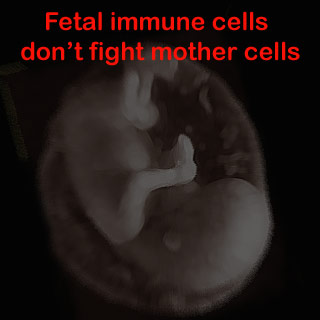
Prior UCSF studies have stated that the immune system of the human fetal is made up of various special immune cells, called the regulatory T cells. The present study concentrated on unveiling the cause of the earlier stated fact.
Jeff Mold, biomedical sciences graduate student, UCSF Division of Experimental Medicine and also the study’s lead author, says, “These results provide one potential explanation for the longstanding observation that many individuals demonstrate some level of immunological tolerance towards unshared maternal HLA antigens.â€
These findings could prove to be very essential for the conducted medical researches ranging anywhere from stem cell transplantation to the manner in which the fetus adapts to the chronic infectious agents present in the mother. They state that this study reveals the human tolerance pathway that was not previously identified. According to them, this study also helps in better understanding and treating autoimmune diseases, where the body fights its own cells; and organ transplant rejection, where the body rejects the transplanted tissue. It is also stated that the study can prove to be very beneficial for the development of effective HIV vaccines.
Senior study author, Joseph M. McCune, M.D., Ph.D., chief of the UCSF Division of Experimental Medicine, says, “Only 5 to 10 percent of babies born to untreated HIV-infected mothers in the absence of antiretroviral interventions are born infected with HIV. We wonder whether some aspect of the immunological tolerance of the fetal immune system might play a role here.â€
The UCSF Division of Experimental Medicine is affiliated with the AIDS Research Institute (ARI) at UCSF. UCSF ARI houses hundreds of scientists and dozens of programs throughout UCSF and affiliated labs and institutions, making ARI one of the largest AIDS research entities in the world.
Their findings are published in the Science issue.
